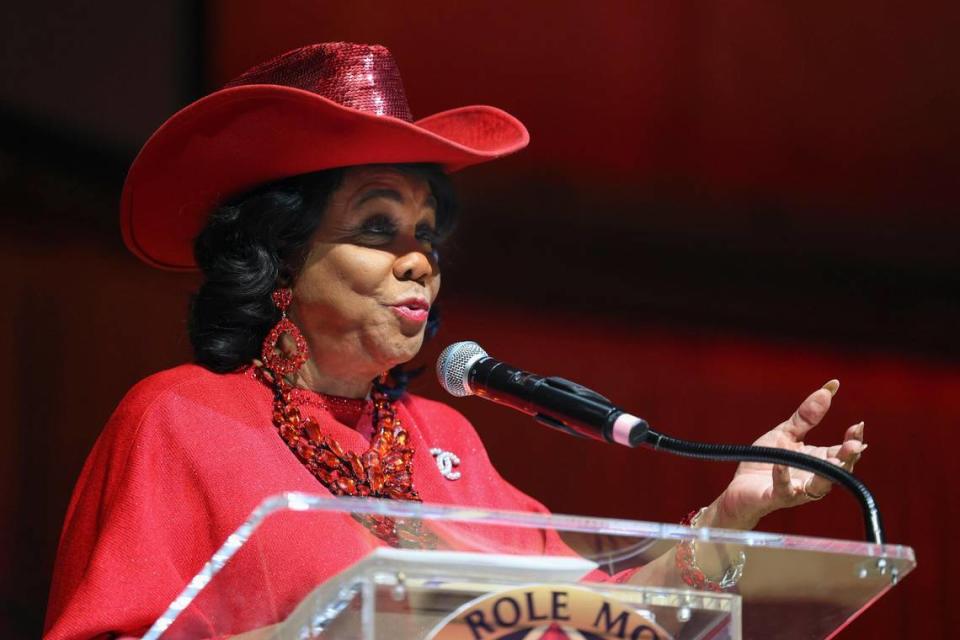‘Unconscionable.’ Miami reaction to Supreme Court striking down race in college admissions
- Oops!Something went wrong.Please try again later.
- Oops!Something went wrong.Please try again later.
- Oops!Something went wrong.Please try again later.
The decision by the Supreme Court on Thursday to strike down race-related admissions programs at the University of North Carolina and Harvard generated heated reaction from some in South Florida’s Black community while the state universities shrugged it off, citing “color-blind admissions.”
Although Florida ended affirmative action under Gov. Jeb Bush in 1999, a decision that inflamed Black leaders at the time, having the policy struck down across the country enraged Congresswoman Frederica Wilson, the Democrat who represents Miami Gardens, the largest majority-Black city in Florida.
“It’s shattering the hopes and the dreams of generations of children yet born,” said Wilson, a former Miami-Dade elementary school principal. “Statistics and studies show that colleges and universities should be diverse because children gain so much from each other and each other’s culture, each other’s history. We learned that with Brown v. Board of Education.
“For some reason, every time people of color take a step forward, this nation finds a way to make them take three steps back,” she added. “The Supreme Court’s decision on affirmative action is unconscionable, out of touch, and a significant setback. America is the land of opportunity. It’s antithetical to our values.”

In an emailed statement Thursday morning, Cynthia Roldan, a spokeswoman for the University of Florida, said UF, the highest-ranked public university in the state by U.S. News & World Report, balances students’ circumstances with their “desire to succeed” when considering applications.
“There is no one single factor that influences admissions decisions at the University of Florida,” she wrote, adding UF uses a “comprehensive, holistic review process.”
UF doesn’t “consider race as a factor” in admissions decisions, she added.
Florida International University, the largest public university in South Florida, cited a joint statement from Florida’s 12 state universities.
It reads in part, “This decision will have no impact on the State University System of Florida. ... The State University System of Florida provides students equality of opportunity through color-blind admissions.”
It also says Florida’s university system is diverse and “proof that diversity can be achieved without affirmative action.”
Miami Dade College and the University of Miami didn’t respond to requests for comment from the Herald.
The court’s conservative majority overturned admissions plans at Harvard and the University of North Carolina, the nation’s oldest private and public colleges, respectively. The vote was 6-3 in the North Carolina case and 6-2 in the Harvard case. The court said race-conscious programs at the two schools were unconstitutional.
Justice Ketanji Brown Jackson — the court’s first Black female justice and a graduate of Miami Palmetto High — called the decision “truly a tragedy for us all.” Jackson recused herself from the Harvard case because she had been a member of an advisory governing board there.
Florida State Sen. Shevrin Jones, a Democrat, said the justices who supported the decision live “in an alternate reality.”
“The court’s decision when it comes to affirmative does not negate the fact that, in the real world, racism still exists when it comes to how we hire and how we admit into our higher education systems,” Jones said, specifically calling Justice Clarence Thomas “the epitome of hypocrisy” for siding with conservatives despite being a beneficiary of race-based admission preferences.
In addition to Thomas, the justices who voted to strike down affirmative action were Chief Justice John Roberts, Samuel Alito, Neil Gorsuch, Brett Kavanaugh and Amy Coney Barrett. They all were appointed by Republican presidents. The three who voted to keep the policy were justices Elena Kagan, Sonia Sotomayor and Jackson. All three were appointed by Democratic presidents.
NAACP Miami-Dade Branch President Daniella Pierre said her organization “remains committed to the fight of diversity, equity and inclusion.” She added that the NAACP will be having an “all-unit call” with the national office tonight so that local leaders like herself can receive the blueprint on how to chart a path forward.
“When we think of future generations,” Pierre continued, “it’s on us to make certain that we hold not only institutions of higher learning accountable, but employers too.”
Both Jones and Wilson said the onus now falls on Black and brown communities to prepare the next generation of students. Whether it’s hiring college counselors who know the ins and outs of higher education admissions or community leaders creating programs that better prepare students, people need to take a more active role in their neighborhoods, according to the two lawmakers. If not, the consequences could be dire.
“We have the potential to raise an entire generation of young people who don’t know how to coexist in a world with individuals who don’t look like them or think like them,” Jones said.

